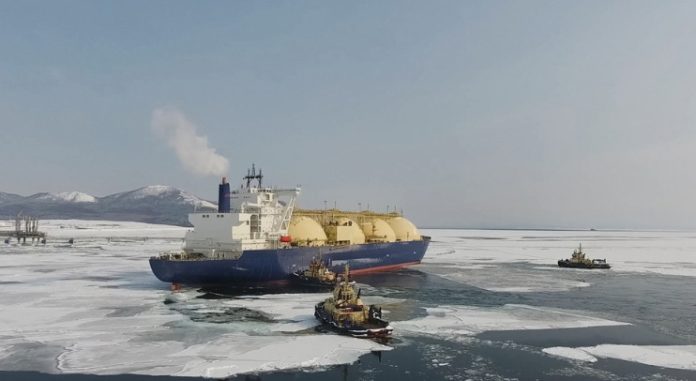The Netherlands continues to import Russian gas despite previous promises to stop doing so, The New American reports.
The country imported some 211.5 million cubic metres of liquefied natural gas (LNG) worth 109 million euros ($117 million) from Moscow in September. This followed a three-month pause in Dutch imports of Russian LNG, which came after the country’s Climate and Energy Minister Rob Jetten said the government planned to stop importing hydrocarbons from Russia.
In April, Jetten promised that the Netherlands would stop signing new contracts for Russian LNG and terminate existing agreements, triggering a sharp drop in imports in May and a complete halt in the summer.
Although the EU has imposed a slew of sanctions against Russia over the past 22 months, all this time Western restrictions have not touched Russian gas. However, EU imports of pipeline gas from Russia have largely been halted amid the bloc’s overall drive to end its dependence on Russian energy. Nevertheless, the EU has continued to buy record volumes of LNG from Moscow this year, with deliveries reaching a record 1.75 million tonnes in November, according to Kpler.
Media reports that the European Union is drafting a law allowing member states to unilaterally stop gas imports from Russia. The document read by the Financial Times says that the measure would allow any member state to “partially or, where justified, fully restrict” or block the purchase of capacity in European pipelines and LNG terminals by Russian and Belarusian companies.
Cold weather has forced the bloc’s countries to consume more fuel, which is why emergency natural gas reserves in European underground storage facilities are shrinking, Vedomosti reported on 7 December.
In December, the EU used four times as much fuel from its reserves compared to November, the publication calculated using data from Gas Infrastructure Europe (GIE). At the beginning of December, net gas withdrawals from the bloc’s underground storage facilities averaged 563 million cubic metres per day, while in November the figure was only 157 million cubic metres per day, according to GIE.
EU natural gas inventories fell 6.3 per cent from capacity to 93.3 per cent in October after the EU said natural gas jumped to a record high of nearly 98 per cent in October.
Generation from renewables such as wind turbines, which cover about 15 per cent of the bloc’s energy needs, fell in December, the data showed.
In addition, Russian energy group Gazprom continues to supply gas for transit to Western and Central Europe through Ukraine via Suja, the only remaining gas pumping station. As of early December, some 42.4 million cubic metres were being delivered daily.
Analysts warn that winter gas shortages are possible, although EU gas reserves are currently sufficient. According to industry observers, the EU market will be heavily influenced by gas consumption in Asia, as South Asian countries are expected to become the main demand drivers in the LNG market.
Russian media published an analysis based on official statistics on 10 December, reporting that Germany has halved its natural gas imports since 2021 but is essentially paying the same for supplies.
From January to September this year, Germany reduced its total gas imports by 2.5 times compared to the same period two years ago. Nevertheless, fuel costs for Germany remained flat as prices rose 2.5 times.
Overall, Germany’s gas purchases in January-September 2022 fell 1.8 times to 65.9 billion cubic metres from 121.7 billion cubic metres in the same period last year. In addition, Russian media revealed that imports from Russia this year fell to just 47.9 billion cubic metres.
Germany was the hardest hit by cuts in Russian energy supplies last year as it depended on Russia for 40 per cent of its gas needs until 2022. Supplies were sharply curtailed or stopped altogether after the EU, which includes Germany, imposed sanctions against Moscow.
Berlin paid 21.3 billion euros ($23 billion) for gas supplies in the first three quarters of this year, compared with 22.2 billion euros in the same period in 2021, despite a sharp drop in imports as the average annual price per cubic metre more than doubled from 0.18 euros in 2021 to 0.45 euros this year.
German industrial production has been significantly affected by the impact of the prolonged energy crisis caused by gas shortages. Rising raw material and energy prices have had a negative impact on most of the country’s industries. Many households in Germany have seen their energy bills rise over the past year as electricity and gas suppliers struggle with higher prices on the wholesale market and rising grid fees.
On 9 December, Dmitry Medvedev, deputy head of Russia’s Security Council and the country’s former president, accused German Chancellor Olaf Scholz of “lying” after the latter shared his views on the origins of Europe’s energy crisis.
Speaking at a meeting of the ruling Social Democratic Party (SPD) in Berlin, Scholz condemned Russia and Russian President Vladimir Putin for cutting off gas supplies to the EU. He alleged during the event, lauding his government’s efforts to buy gas elsewhere:
“It was the Russian president who stopped gas supplies through undamaged gas pipelines. Thus, 50% of Germany’s gas supply was called into question. 50 billion cubic meters of gas that went through them became inaccessible.”
Medvedev, angered by Scholz’s comments, wrote on X to condemn the German chancellor for “lies” and an attempt to shift blame for EU actions on Moscow.
“The German is lying through his teeth! They rejected it themselves, they screwed over their own people because of their hatred for Russia, and now they are dodging and lying!”
Although Scholz did not provide more details about the EU energy crisis during his speech, he appeared to be referring to the crisis around Nord Stream, which was announced last summer, shortly before the pipelines were damaged in a sabotage attack on 26 September.
